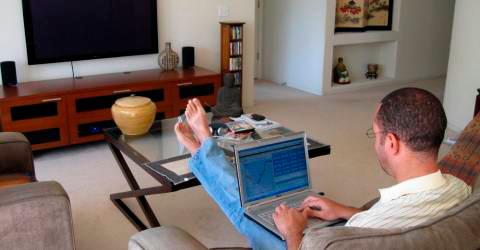PETALING JAYA: Businesses are still unprepared to go full swing into work-from-home mode, and the government is partly to blame.
SME Association of Malaysia president Datuk Michael Kang said the government failed to provide the incentives to prompt business to adopt digitalisation quickly despite the experience gained from the country’s first movement control order (MCO).
“Without the proper infrastructure to go digital fully, it is difficult to allow employees to work remotely,” he told theSun yesterday.
“There is a lack of urgency in the government and that will leave many companies incapacitated if staff are allowed to stay away from the office,” he said.
“Therefore, we have no choice but to insist that employees return to the office despite the health risks involved,” he added.
Kang said that for many small companies, it is a matter of survival now, so giving employees the option to work from home would seem luxurious.
“But the bottom line is that the government has not prepared businesses for this second round of lockdown.”
“The government had ample lessons to learn from the first MCO, from the damage it has done to livelihood across the nation.”
He said businesses are aware of the fact that allowing employees to work remotely could reduce the number of people at the office and thereby ensure social distancing.
However, Kang commended the government for introducing various schemes such as the National Economic Recovery Plan and SME Financing Scheme to help put businesses back on their feet.
Nonetheless, he said efforts should be made to expedite the approval process for such grants.
“It takes a long time, even for grants as small as RM5,000.”
Kang also acknowledged that big companies such as Microsoft in the United States, Fujitsu in Japan and Tata Consultancy Services in India have adapted easily to the new normal and allowed employees to work from home.
“But SME in Malaysia are not ready for that yet,” he said.
Malaysian Employers Federation executive director Datuk Shamsuddin Bardan agreed that improvements in infrastructure are essential to make remote work possible.
“Right now, the infrastructure is not adequate. Phone reception is spotty, internet connectivity is less than perfect and there are not enough security tools to remotely keep personal data safe,” he said, adding that the work-from-home culture has yet to catch on in Malaysia.
“Most people like to work together as a team,” he pointed out.
“I don’t think Malaysian companies are prepared to give employees the option to work remotely on a permanent basis.”
“It will be a challenge to try to introduce this concept if there are no improvements (to the infrastructure),” Shamsuddin said.
“The government has to help businesses by providing the right tools to manage issues such as confidentiality so that they will be empowered to encourage their employees to work from home,” he added.












